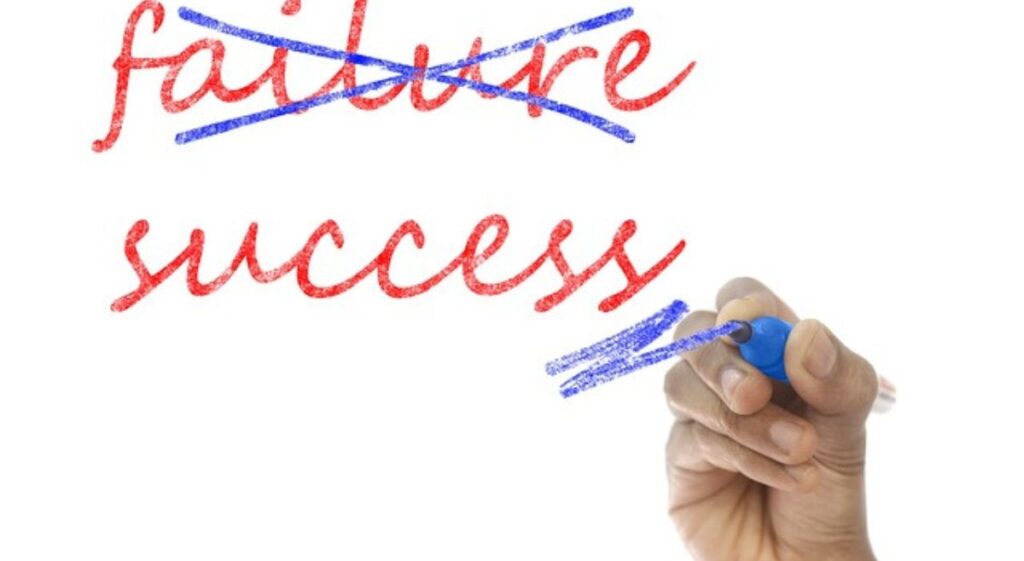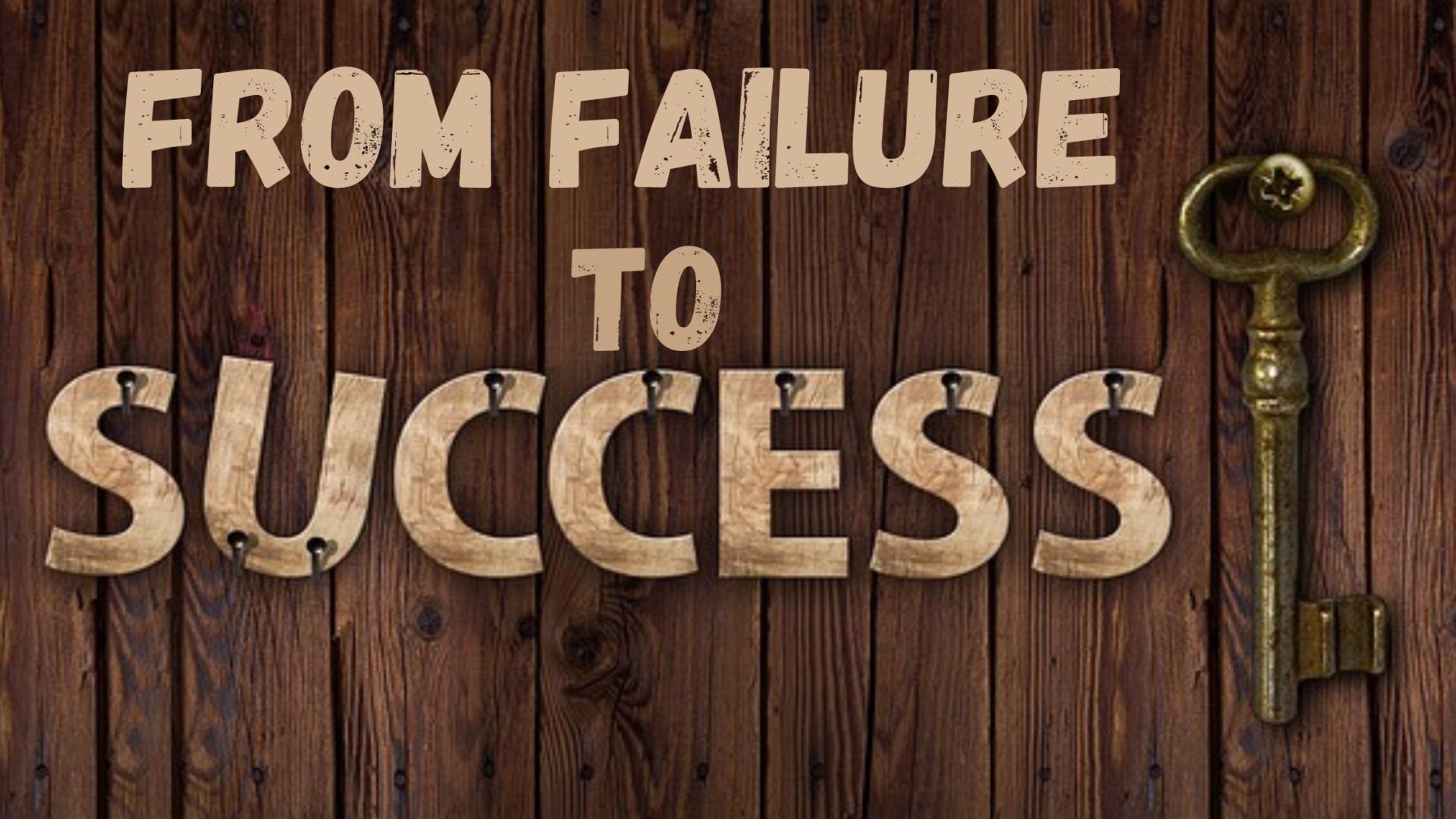Introduction:-
From Failure to Success: How to Move Forward and Conquer Any Obstacle

In the journey of life, everyone encounters obstacles that may initially appear insurmountable, leading some individuals to interpret them as failures. However, those who embrace a growth mindset and learn from their setbacks often discover that failures can serve as stepping stones toward success. This article aims to guide you through the process of transforming failures into opportunities for growth, helping you overcome obstacles and ultimately achieve your desired goals.
How do I turn failure to success into an opportunity for growth?
To cultivate a growth mindset and turn failures into opportunities for personal and professional development, consider implementing these strategies:
- Embrace and Acknowledge Failure:
- Recognize that failure is a natural part of life. Everyone experiences setbacks.
- Practice self-compassion. Understand that failing doesn’t define you as a person.
- Analyze the Failure:
- Reflect on what went wrong. Identify factors that contributed to the failure.
- Seek feedback from others to gain diverse perspectives.
- Learn from the Experience:
- Extract specific lessons from the failure. Determine what you can do differently next time.
- Apply the insights gained to enhance your approach in the future.
- Cultivate a Growth Mindset:
- Adopt a positive attitude. Believe that abilities and intelligence can grow through effort and learning.
- View challenges as opportunities for growth and learning, not as insurmountable obstacles.
- Set Realistic Goals:
- Create SMART (Specific, Measurable, Achievable, Relevant, and Time-bound) goals.
- Break down larger goals into smaller, manageable tasks.
- Develop Resilience:
- Maintain persistence. Keep pushing forward despite setbacks. Resilience fosters strength and character.
- Build a support system of encouraging and motivating individuals.
- Innovate and Adapt:
- Be flexible. Adapt to new information and changing circumstances. Embrace creative problem-solving.
- Experiment with different strategies. Stay open to trying new approaches.
- Celebrate Milestones and Progress:
- Acknowledge your achievements, no matter how small. Celebrate progress to boost motivation.
- Reward yourself for reaching milestones. Positive reinforcement encourages continued effort.
- Document Your Journey:
- Maintain a journal to record experiences, lessons learned, and progress over time.
- Regularly review your journal to reflect on your growth and learning.
- Practice Patience:
- Understand that growth takes time. Be patient with yourself and trust the process.
- Stay consistent in your efforts for gradual and sustained improvement.
Incorporating these strategies into your life can transform failures into valuable learning experiences that propel you toward greater success and personal growth.
What are the common obstacles to success and how to overcome them?
Obstacles to Success and Strategies for Overcoming Them:

Success often faces various barriers. Recognizing these obstacles and implementing effective strategies to overcome them is crucial for achieving your goals. Here are some common challenges and practical solutions to help you navigate and overcome them:
1. Procrastination:
- Cause: Delaying tasks due to fear of failure, lack of motivation, or feeling overwhelmed.
- Solution:
- Set specific deadlines for yourself.
- Break large tasks into manageable parts.
- Prioritize tasks based on importance.
- Utilize productivity tools to stay on track.
2. Lack of Clear Goals:
- Cause: Not having a clear direction or defined objectives.
- Solution:
- Set SMART (Specific, Measurable, Achievable, Relevant, Time-bound) goals.
- Document your goals and review them regularly.
- Create detailed plans for each goal.
3. Fear of Failure:
- Cause: Anxiety about making mistakes or not succeeding.
- Solution:
- Reframe failure as a learning opportunity.
- Focus on your strengths and past accomplishments.
- Seek support from mentors or peers.
4. Lack of Resources:
- Cause: Insufficient time, money, or tools.
- Solution:
- Identify and plan how to obtain needed resources.
- Utilize time management techniques to maximize available time.
- Create a budget to manage financial resources effectively.
5. Negative Mindset:
- Cause: Self-doubt, pessimism, or negative self-talk.
- Solution:
- Use positive affirmations to reinforce a positive self-image.
- Surround yourself with positive people and environments.
- Practice mindfulness and meditation to manage stress.
6. Poor Time Management:
- Cause: Inefficient use of time leading to missed deadlines and stress.
- Solution:
- Prioritize tasks based on impact.
- Use a detailed schedule or calendar to plan your day.
- Identify and minimize distractions in your environment.
7. Lack of Skills or Knowledge:
- Cause: Gaps in necessary skills or knowledge to achieve goals.
- Solution:
- Invest in education and training to build relevant skills.
- Find mentors who can provide guidance and knowledge.
- Regularly practice and apply new skills to real-life situations.
8. Ineffective Communication:
- Cause: Misunderstandings or lack of clear communication.
- Solution:
- Work on verbal, written, and non-verbal communication skills.
- Practice active listening to better understand others.
- Create channels for giving and receiving constructive feedback.
9. Health Issues:
- Cause: Physical or mental health problems affecting performance.
- Solution:
- Prioritize health and wellness through diet, exercise, and sufficient sleep.
- Consult healthcare professionals for health concerns.
- Use stress management techniques like meditation, yoga, or hobbies.
10. Lack of Motivation:
- Cause: Loss of interest or drive to pursue goals.
- Solution:
- Reconnect with the underlying reasons for your goals.
- Break long-term goals into short-term milestones to maintain momentum.
- Recognize and reward your achievements to stay motivated.
By addressing these common obstacles with specific strategies, you can enhance your ability to achieve success and make steady progress towards your goals.
How can failure be a stepping stone to success?
When approached with the right mindset and strategies, failure can serve as a powerful stepping stone to success. Here’s how:

1. Learning and Growth:
- Gain Insights: Failure provides valuable lessons that success cannot. It highlights what doesn’t work, helping you refine your approach.
- Skill Development: Overcoming failure often requires acquiring new skills and knowledge, which can benefit you in the long run.
2. Resilience and Persistence:
- Builds Resilience: Experiencing failure and bouncing back strengthens your ability to handle future challenges.
- Encourages Persistence: Understanding that failure is part of the journey helps you keep going despite setbacks.
3. Innovation and Creativity:
- Fosters Innovation: Failure pushes you to think outside the box and come up with creative solutions.
- Encourages Experimentation: Knowing that failure is possible, you might be more willing to experiment and take risks, leading to innovative breakthroughs.
4. Improved Decision-Making:
- Informed Choices: The experience of failure sharpens your decision-making skills, making you more cautious and thoughtful about future choices.
- Risk Management: Learning from past mistakes helps you identify and mitigate risks more effectively.
5. Humility and Empathy:
- Increases Humility: Failure can be a humbling experience, reminding you that you’re not infallible and encouraging a growth mindset.
- Builds Empathy: Having experienced failure yourself, you’re more likely to be empathetic and supportive toward others facing similar challenges.
6. Motivation and Focus:
- Boosts Motivation: Failure can ignite a desire to prove yourself and achieve your goals, driving you to work harder and smarter.
- Sharpens Focus: It can help you reassess and realign your priorities, ensuring that you’re focused on what truly matters.
7. Networking and Relationships:
- Strengthens Relationships: Failure often reveals who your true supporters are, strengthening your relationships with those who stand by you.
- Builds Networks: Sharing your experiences and lessons learned from failure can help you connect with others who have faced similar challenges.
8. Confidence and Self-Awareness:
- Builds Confidence: Successfully overcoming failure and achieving your goals builds confidence and reinforces your belief in your abilities.
- Enhances Self-Awareness: Failure provides an opportunity for introspection, helping you understand your strengths, weaknesses, and areas for improvement.
9. Long-Term Success:
- Foundation for Success: Each failure is a step toward success, providing the basis upon which future achievements are built.
- Sustainable Success: The lessons learned from failure contribute to a more enduring success.
10. Adaptability and Flexibility:
- Promotes Adaptability: Failure forces you to adapt and change your strategies, making you more flexible and open to new approaches.
- Encourages Continuous Improvement: It fosters a mindset of continuous improvement, where you’re always looking for ways to enhance your performance.
Real-World Examples of Success through Failure:
- Thomas Edison: Edison’s numerous failures in developing the light bulb taught him invaluable lessons, leading to his eventual success.
- J.K. Rowling: Before finding success with Harry Potter, Rowling faced multiple rejections, which strengthened her resolve and refined her storytelling.
- Steve Jobs: Jobs’ failures, including being ousted from Apple, led to personal and professional growth, ultimately contributing to his later success with Apple’s resurgence.
By viewing failure as a stepping stone rather than a stumbling block, you can harness its potential to drive your personal and professional growth, ultimately leading to greater and more sustainable success.
Conclusion
In the pursuit of success, the path is often fraught with challenges, but the rewards are immense. Embracing failure as a stepping stone, cultivating resilience, and embracing adaptability and innovation are key. Maintaining focus, staying determined, and celebrating every small victory is crucial for progress and overcoming obstacles. Remember, every failure is a lesson in disguise, propelling you closer to your goals. Continue learning and pushing forward with unwavering determination, and you will eventually conquer your aspirations.
References
1.Isaacson, W. (2011). Steve Jobs. Simon & Schuster.
2.Brown, B. (2012). Daring Greatly: How the Courage to Be Vulnerable Transforms the Way We Live, Love, Parent, and Lead. Gotham Books.
3.Dweck, C. S. (2006). Mindset: The New Psychology of Success. Random House
4.Duckworth, A. (2016). Grit: The Power of Passion and Perseverance. Scribner.
5.Maxwell, J. C. (2007). Failing Forward: Turning Mistakes into Stepping Stones for Success. Thomas Nelson.








